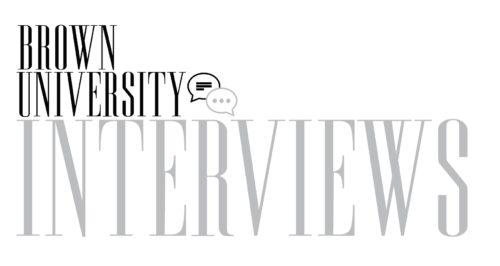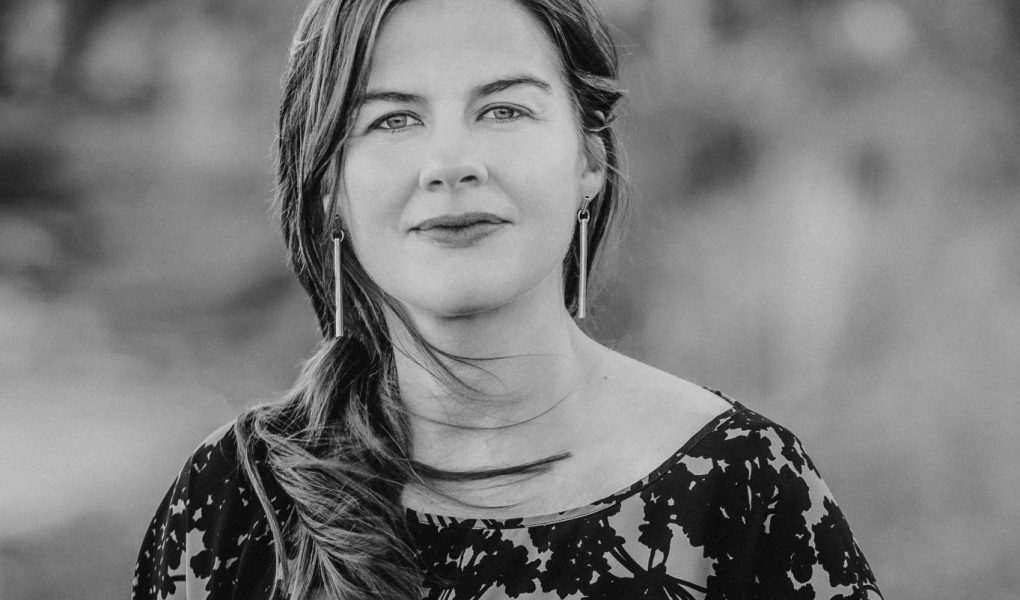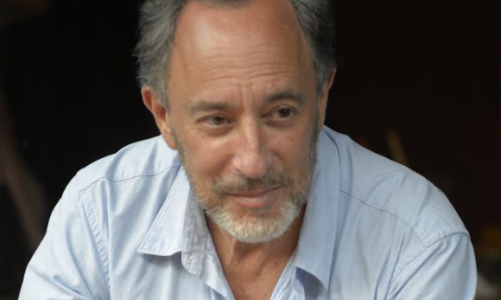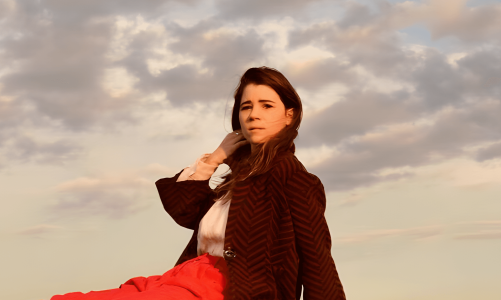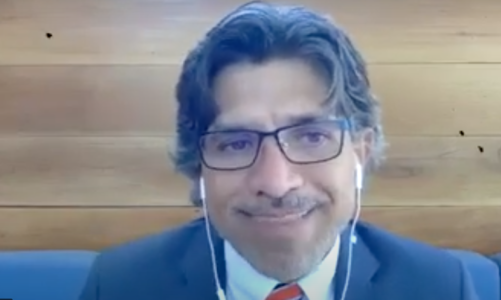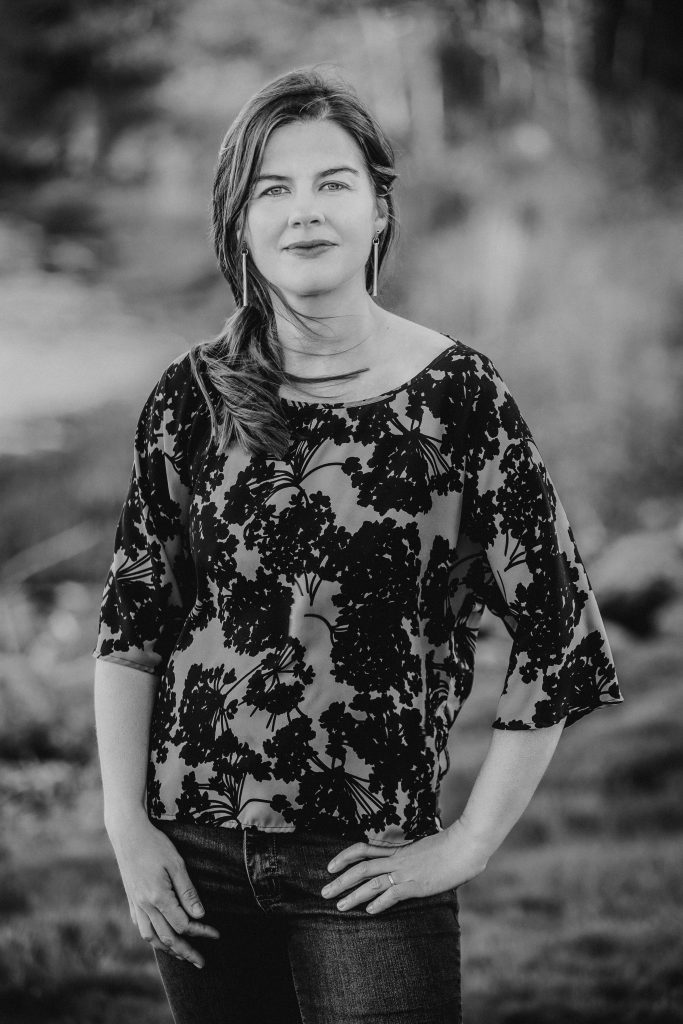
Elizabeth Rush is a professor of English at Brown University and the author of The Quickening: Creation and Community at the Ends of the Earth and Rising: Dispatches from the New American Shore, both of which were finalists for the Pulitzer Prize. Rush centers the act of listening in her work, and tells stories of those often left out of environmental narratives, whether they are women in Antartica or frontline community members in the United States. Rush has received fellowships from the National Science Foundation, National Geographic, the Alfred P. Sloan Foundation, the Howard Foundation, the Andrew Mellon Foundation and the Metcalf Institute.
In this interview, we discussed the role of listening and storytelling in living engaged lives and working within the environmental movement, as well as what Rush has learned through her writing experiences.
Riley Stevenson: I first heard you speak to my ‘Monsters of the Abyss’ class this fall, where I was ecstatic to learn about your trip to Thwaites Glacier which your upcoming book, The Quickening, is based on. I’m hoping to dig more into the work that you’ve done. What drew you to creative nonfiction and how did you start writing?
Elizabeth Rush: I was a poet first––I trained to be a poet. I loved environmental poetry and eco-poetics. I graduated from a small liberal arts college called Reed College in Portland, Oregon. And I wanted to write about nature, but so does basically half the population of Oregon.
So I ended up moving to North Vietnam and working for an Art Foundation that supported contemporary North Vietnamese artists making often-controversial work. I worked as a writer for them for a couple of years. During that time, I sold my first poem and was given $35 to which people still say, “Oh, you got paid for your poem. That’s good.” There’s really not a lot of money in poetry.
I started to write literary reportage or long form for a couple of different publications on the side. They paid me $2,000 or $3,000 an article, and I realized that there’s just more financial security in writing nonfiction. So I ended up getting my MFA in creative nonfiction. Even when I was writing those newspaper pieces, I was still using my poet’s mind. And I feel like that’s still true. What I first learned about how to write comes from poetry. I think that still shapes my practice today. That, and lyricism – you’re like trying to make people feel things without telling them how to feel.
Can you tell me about some writers and thinkers who inspire you?
A book that’s been a huge inspiration for me, from Svetlana Alexievich, is Voices From Chernobyl, which is the story of the Chernobyl nuclear disaster and its aftermath, as told from the perspective of people who lived through the event. There are 93 different monologues in this book. And in that sense, the book is entirely comprised of the voices of the people to whom the experience happened, not the author’s voice.
Alexievich is the interviewer: she listens, she transcribes, she edits down to a poetic chunk of text. But it’s almost all citizens, mostly in Belarus, talking about and trying to make sense of the fall of the Soviet Union. It’s awesome. That book has been super influential for me because I often incorporate voices that aren’t my own. A really deep iterative interview process is important to how I work.
You talk about listening as central to your work. And that’s true of The Quickening, in that it’s all about other people’s stories and experiences on an incredibly unique journey. What lessons do you feel like you’ve learned from this style of writing, and the practice of really intense listening? Do you feel like those have rippled out into other elements of your life?
In order to be a good listener, you have to be deeply curious about what the person’s going to say. And I think a lot of times, people aren’t necessarily that deeply curious. Some adults never learn how to not be at the center of everything. I was just at a dinner party that my parents hosted where their good friends said, “That was so fun! I felt like your daughter and her husband really wanted to hear what we had to say!”
And I thought, “Because we do! We’re interested.” So I think it starts from a place of real curiosity about other people and a sense of humility of “I’m not the center of the story.” Instead, I happen to have skills that can help other people tell their stories.
It’s also a thing that I learned in college. I was writing all of these poems about lust and love and heartache. And my mentor finally said to me, “You know that the poem doesn’t have to be about you?” And that liberated me. I can still remember writing a poem about this lover that I had, who was from Lebanon. It was really a poem about being a young person who had grown up in the U.S. and waking up to the fact that you could grow up in a totally different place and have car bombs cratering the sidewalk in front of the theater where you want to go watch movies.
That is not about me. But I still remember writing that poem and it was my favorite thing I had written for a really long time. It was the first time I stopped thinking of my life as the bounding box for my writing. I feel like that is a lesson that bleeds out into everything else – I’m not the center of the universe. The more I can get out of my own way, the better. The more you give attention and listen to other people, the better.
How much of you do you feel is present in your work? And how do you reckon with the fact that you’re still in the story no matter what?
I often think of the ‘I’ that’s on the page not as me, but as a character that’s also doing labor in a story. In the way that if you’re a fiction writer, people have to do things to move the story forward, I often think, what am ‘I’ doing? Not, is it a perfect representation of me?
With my new book, The Quickening, which is about Antarctic ice loss, I feel like that first person ‘I’ is a character that comes in often in a way that I would imagine is sort of voyeuristically pleasurable for a reader, in that the ‘I’ is talking about really personal shit. Like, “Should I have a baby? Oh my God, I want to have a baby. I just took the pregnancy test, I’m not pregnant. I’m really disappointed.” I feel like that really intimate view into one person energizes things around it that can feel really cold, like marine ice cliff instability. So I often think of the ‘I’ in this new project as being a voyeuristic pleasure point for readers. And yes, that is informed by the observations that I’ve made about the world in my actual life, but I can have a distance from that person, and that character.
Yes, that makes sense. The book is not just about you purely interviewing people. It would be different if you had taken a bunch of people who stepped off a boat from Thwaites Glacier and asked them questions. Instead, you were there alongside them. It’s your story as well. It would be strange to separate your own journey from theirs. How do you grapple with that in your work?
I think that’s important, too, because with a lot of my interviews, I’m a real person in the interview. And it’s a good interview because I know the person and I’ve built a relationship with them. So to make that person completely disappear doesn’t make sense to me. Because those relationships are also part of how the book object came into being.
You’ve written two books that are centered around other people’s stories and drawing meaning from them. Can you talk about the power of storytelling, particularly in telling environmental stories, and if you’ve found them to be empowering?
I feel like facts don’t change people’s minds. We are bombarded by facts. Though I don’t know if stories change people’s minds, they certainly touch people in a different way and are harder to forget. I don’t think I want to point to stories as being like, “Oh, this turned me from a climate denier to a climate believer.” I don’t think it exactly works that way.
I think stories work their way into our subconscious, and are sticky. And then the stories are sitting there when we look outside and we see a cherry blossom tree blooming in November, and we think, “huh, that’s strange.” I think that you then filter that information through neural networks that live with stories that can help you see an issue more clearly or feel a particular way about it. I aim to make my stories pleasurable, make them hard to put down. But also to make them beautiful, and art objects, too.
What do you see as your and other writers’ roles in the environmental movement?
I’m in a climate change reading group, and one thing that I’ve been struck by is that we all have our different little spins. There’s the intellectual pessimist, the pragmatic optimist, and seeing us all get together regularly has made me realize that there’s no one way to tell this story.
Readers are as different as writers, and I take some solace in that there are so many of us trying to figure out ways to tell compelling stories. We can keep handing the baton off among us. I think some people respond more to the apocalyptic narrative and some people respond more to the solutions narrative, and some people respond more to the poetic narrative. Thank God, we have people doing all those things. We’re going for intergenerational change. And each of us is just playing our own small part in that.
You often frame your work as revolving around two central questions: What does our disassembling world ask of us? And, how can we continue to live and love while also losing much? Obviously, those cannot be easily answered, but what have you learned about them through your work?
One of the main things that I’ve learned is that I do have other people’s voices in my work a lot. I knew early on that I didn’t want to include those voices if they didn’t get to look over the text, and maybe change it.
One thing that I’ve learned is that the people with whom I’ve maintained the most contact, or that I built the deepest relationship with also tend to be the ones who change the most. I think that that’s because the depth of our relationship empowers them to say, “Hey, I don’t really like this”, or “My mom’s gonna read this, so can we change this thing?” which has just made me realize how important actually laboring alongside one another is in terms of building reciprocity and care in a meaningful way.
We talk about it, and you could do the gesture of, “Hey, you can change this if you want.” But actually, that gesture isn’t enough, you have to take the time to be a friend to that person, be real in relationship to them if you actually want them to engage in a real way with the thing that you’re making. I think that that’s probably true of everything.
*This interview has been edited for length and clarity.
